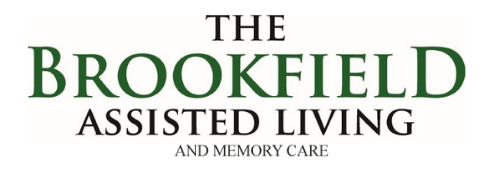Preventing Caregiver Fatigue Following the Holiday Season
Preventing Caregiver Fatigue Following the Holiday Season
The holiday season brings a lot of cheer, but it also comes with its fair share of stress. You may not feel it until the post-holiday period when things finally start to slow down, and you have the time to process what’s going on. It takes time and physical and mental energy to be a caregiver, and the whole thing may sometimes seem overwhelming.
Here is a comprehensive guide that covers the causes, signs, and prevention techniques that you can follow to prevent caregiver fatigue after the holidays. Read on to learn more!
Understanding Caregiver Fatigue
Caregiver fatigue is a state of burnout when a caregiver reaches the point of psychological, emotional, and physical exhaustion. It may result in a shift in outlook from positivity and concern to pessimism and indifference; as a caregiver, you may often put the needs of the ill or elderly person you are looking after ahead of yours. Neglecting your own physical, mental and emotional health may lead to exhaustion, stress, worry, sadness, and, ultimately, caregiver fatigue. Hence, it’s vital to make sure you spend some time planning how to make the most of your time with your loved ones.
Breaking Down the Prominent Causes of Caregiver Fatigue
1. Stress Associated with the Role
The caregiver's responsibilities over the course of the holiday season often triggers burnout. Many people who care for ill or elderly patients deal with additional responsibilities, resulting in increased work hours. Spending time away from them may even make you feel guilty, thus adding to your emotional strain.
Everything from your routines and diet to your mental health could take a toll when you’re focused on looking after someone else. Engaging in this conduct might put psychological and emotional strain on a person.
2. Stress of Playing Multiple Roles
It's common for caregivers to be confused about their role in the life of the person they are looking after. Caregivers may feel confused about their relationship dynamics and find it challenging to separate their relationship with the ill or elderly person from their role as a caregiver.
Caring for a loved one may also interfere with your ability to fully engage in other relationships, such as those with your partner, kids, friend, or parents. As a result, it may make you feel unsettled, making you question your abilities in the long run.
3. Improper Time Management and Insufficient Resources Availability
Sometimes, the inability to adequately plan, coordinate, and organize the loved one's care causes stress for many caregivers. You may often experience financial strain as a result of the mounting costs associated with medical care and other treatment, which eventually affects you mentally in the long run.
Key Signs and Symptoms of Caregiver Fatigue
1. Anxiety
Anxiety is among the initial symptoms that will start to show up if you are overworked and exhausted. Because of anxiety, caregivers tend to worry unnecessarily about the patient and themselves.
This state could eventually result in insomnia, which would worsen the caregiver's worry and agitation. It is a negative feedback cycle that, if left uncontrolled, might result in the caregiver having nervous breakdowns and panic attacks. Make sure you do not avoid the early signs of anxiety and consult a professional as soon as possible to help prevent other problems in the future.
2. Lack of Engagement in Everyday Responsibilities and Duties
If the stress leads to burnout, you may need to detach yourself from your everyday duties and responsibilities. Due to frustration and stress, you may feel the need to ignore your responsibilities as this can seem to be the easiest way out during this period.
3. Caregiver Resentment
Caregivers may exhibit signs of resentment and irritation towards the patient, pay little or no heed to the patient's concerns, or respond rudely when confronted about the situation. Caregiver resentment may also result in guilt later. However, you must understand that caregiver resentment is a normal result of stress and not your fault. This does not mean you no longer love the patient and only look after them out of obligation.
4. Clinical Depression
Being a caregiver comes with the risk of developing clinical depression. In fact, this condition impacts around 40-70% of caregivers.
Other aspects of their lives, such as their well-being and relationships with people they care about, might also be impacted. All of these things have the potential to set off depressive episodes. Make sure you talk to a professional as soon as you start seeing any symptoms of depression or other issues affecting your day-to-day responsibilities.
5. Drug and Alcohol Abuse
Caregivers experiencing burnout might turn to substance abuse problems in some cases. Insomnia medication and painkillers may lead to drug and alcohol abuse. Attempting to numb the psychological effects of losing patients to whom they have become attached is another cause.
Other physical manifestations of caregiver fatigue include-
- Frequent body aches
- Recurrent instances of tiredness and exhaustion
- After-work headaches don't seem to go away.
- A weak immune system
- Insomnia
Effective Ways to Combat Caregiver Fatigue Post Holidays
1. Get Prepped to Tackle the Post-holiday Blues
It's normal for some people to feel depressed around and after the holidays, especially the elderly. Maybe the holidays remind them of good times or beloved relatives they lost touch with. As a caregiver, make sure you encourage them to look forward from a fresh perspective and cherish what they have now.
Also, Seasonal Affective Disorder (SAD) and even depression can emerge in seniors during the winter. Depression is not a natural part of becoming older, and that's something to keep in mind as a caregiver.
2. Self-Care Is the Key
Remembering to care for oneself during and after the holidays is crucial. You should make it a priority to preserve your health, get some rest, and prevent caregiver fatigue by doing so. Exercise and fresh air are good, so get outside as much as you can. Another piece of advice is to treat yourself to a self-care activity, preferably something you used to love but have stopped doing.
The mental and physical strength you gain from exercising is invaluable. As a bonus, it enhances your immunity to illness and stress.
3. Make Productive Use of Free Hours
Caregivers need to develop hobbies and interests outside their jobs when they aren't on duty. Participate in social events with family and friends and cultivate other skills, which can increase relaxation and revitalization. Because sleep aids in the body's recovery from the effects of stress, getting the recommended amount of shut eye every night is critical.
4. Don’t Hesitate to Ask for Help
Anyone who notices any of the previously discussed warning signs should not hide them; instead, discuss them with someone else. Remember that other caregivers have been here, and many have had similar experiences to you. Always be willing to discuss things with them because they may have some sound recommendations and tried-and-tested methods stored away on how to handle unexpected circumstances.
In more severe cases, it is advisable to seek professional assistance from a psychiatrist, who can assist with managing the early stages of depression.
5. Do Not Attempt to Handle Everything on Your Own
If you have family members staying with you, seek their assistance in caring for your loved one so you can get some time for yourself. You can also consider hiring a professional to provide short-term respite care so that you can get some time off.
Make sure you research properly before hiring a professional- check reviews, learn about their past experiences, and set clear expectations to ensure they are able to fulfill your requirements without any hassle.
6. Aim at Improving Challenging Family Dynamics
Make sure you communicate your needs around the situation. You can also consider asking for help from other family members by dividing a few tasks among them from time to time.
You may have to come across specific resentful comments or criticism at times. Make sure you take a step back to analyze the source of such comments and evaluate whether they are helpful for you or not. If disagreements occur about your loved one's care, make sure you consult a professional care manager to resolve the issue.
It is essential to understand that self-care is crucial to a caregiver's success- you need time away from your caregiving duties to recharge your batteries and maintain your sanity. You need this for your well-being and to take excellent care of your loved ones.
If you are looking for a reliable and responsible team to help you with this, head over to Brookfield Senior Living. Our experts try to provide a warm and welcoming space for your loved one, a home away from home that will provide you with much-needed relief as a caregiver. Get in touch with us today for more details!
QUESTIONS? CONTACT US.
The philosophy of assisted living emphasizes personal autonomy and privacy. Our facilities emphasize independence, homelike settings, and the ability to age in place. Our communities are designated as Level I or Level II Assisted Living.
Choosing the right place to live can be difficult. If you are still unsure of which place is right for you, just give us a call at your preferred location and we can talk about it over the phone.
For media inquiries, please email: marketing@brookfieldseniors.com
All Rights Reserved | Brookfield Assisted Living and Memory Care


